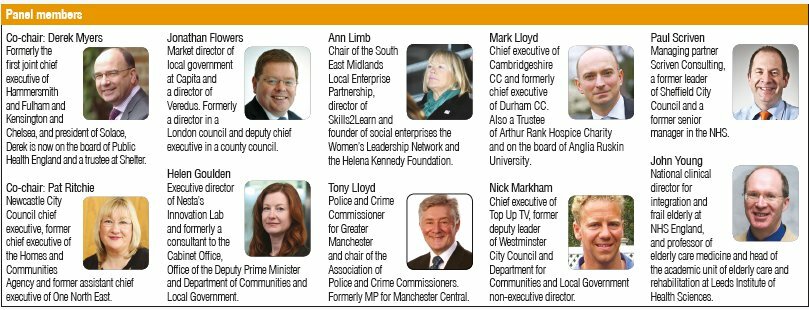Across the country, there are great examples of local partnerships delivering better public services for residents – whether it is health, social services and voluntary organisations joining forces to tackle domestic violence or local authorities, skills providers and JobcentrePlus helping local people into work.
In these places, local public service leaders have looked beyond their own organisational interests to see challenges from their residents' and service users' points of view. This has led to services which are increasingly designed around the individual, delivering better outcomes and reducing the need for intensive and more expensive interventions.
But there remain some stubborn challenges to these more integrated ways of working.
Funding is often fragmented, which can undermine effectiveness and value for money. In some cases, cultural and leadership issues can inhibit partnership working and integration.
And, at a more basic level, organisations often find it difficult to share the very information that could unlock more joined-up working.
So, despite some real progress we must do more to increase the pace of change.
This is why the Government established the Service Transformation Challenge Panel last month.
Together, we will spend the next four months investigating why – and how – some examples of partnership have flourished while others have struggled.
Of course, where there have been successes we will look at how other places could learn about and make best use of that best practice.
Where there have been barriers to change we will examine why and we will be making some very practical recommendations to both national and local government about how it could resolve these challenges.
This is a big task as we will be looking across the range of public services – not just local government provision. Thankfully we will be supported by a really strong panel with wide-ranging experience of public service design and delivery.
The panel's collective knowledge and experience represents a real mix of all sections of the public sector as well as the private sector – important because the panel make-up reflects the wide variety of partners needed to improve public services.
We are both determined that the final report of the panel is not left to ‘sit on the shelf' and that our recommendations are challenging and practical for national and local government.
But we need your help if we are going to get under the skin of what is happening and where there are barriers. We need the real examples and the evidence of your own experience, and the experience of your residents, to make a cast iron case for change.
Derek Myers is former chief executive of Hammersmith and Fulham LBC and Kensington and Chelsea RLBC and Pat Ritchie is Newcastle City Council chief Executive
For more information about the Challenge Panel and details of how to submit evidence, please visit http://publicservicetransformation.org/service-transformation-challengepanel


